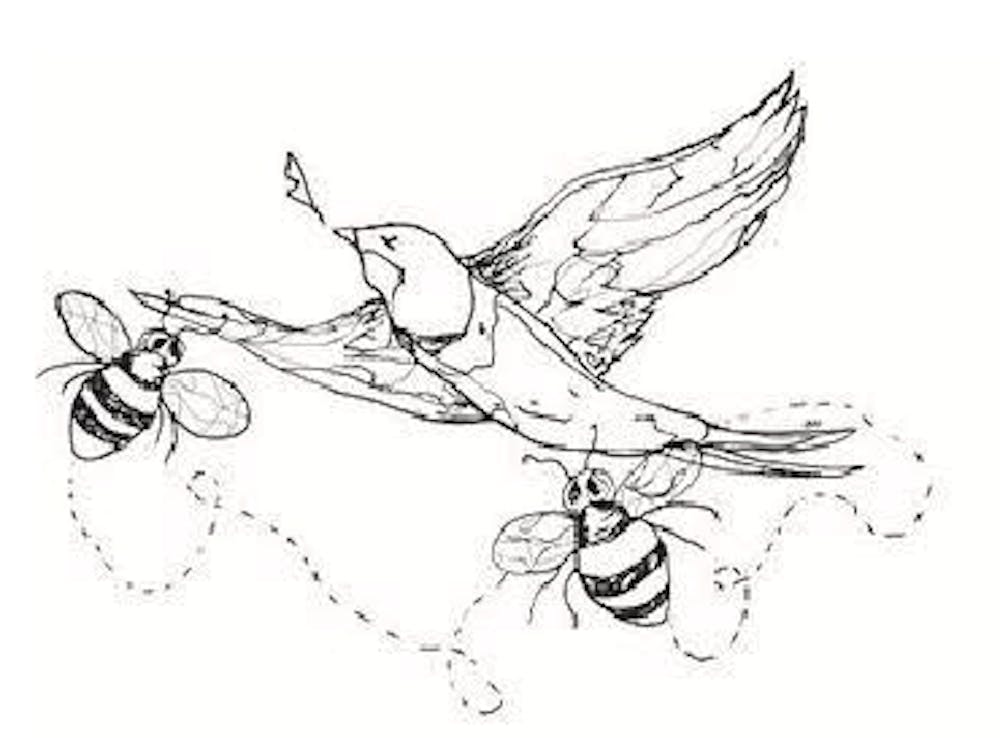“You know it’s okay to masturbate, right?”
These jarring words came from my mother while we were making sun-tea together in our kitchen. I was 14 and horrified. I uttered a curt “Yes, mom” to shut down the conversation as quickly as it had started. From my memory, her rhetorical question was brought on by no comment of my own. I was a private teenager and had less than no interest in talking to my parents about sex (along with most of America’s teens, I’d imagine).
Sun-tea unfinished, I casually, yet swiftly, left the room to avoid a very-much-unwanted continued conversation. All she had said were seven words. She clearly thought there was no need for an explanation (thank you, Urban Dictionary) as she knew that one sentence would do the trick in unwinding the bundle of prejudices I had held in regard to masturbation.
‘Masturbation is gross. Sacrilegious. Dirty. Un-lady-like. For boys.’ These were the sentiments that the vast majority of my female friends held growing up and that, unfortunately, some still hold.
My hometown was exceptionally progressive and homogenous, with only one outwardly conservative student in my graduating high school class of 138. Regardless of its supposedly liberal ideals, our public high school had its share of gendered afflictions, just like any other. And due to the hushed nature of sex, the problem wasn’t put into words. For girls, we didn’t know what we were missing because no one was willing to talk to us about it.
Starting in the final years of middle school, some boys were already joking about sex and masturbation at recess—normalizing the conversation from the outset. While boys learn from others at sleepovers, along with YouTube, Urban Dictionary, Pornhub and maybe even their overly presumptuous fathers, girls are left in the dark. According to Dr. Perri Klass in an Op- Ed from December for The New York Times, this isn’t just a problem in the social realm: there’s a complete deficit of conversations about masturbation in pediatricians’ offices as well.
And when these conversations do happen? “We do leave girls out of the conversation almost totally,” said Dr. Elizabeth Erickson, an assistant professor of pediatrics at Duke University, in an interview in the New York Times Op-Ed.
From conversations with friends, I am the only female I know whose mother even uttered the word “masturbation” while growing up. In hindsight, I was the lucky one. According to our friends at Planned Parenthood, masturbation also comes with a host of emotional and physical benefits: reduced stress, sounder sleep, improved self-esteem and body image, even “strengthened muscle tone.”
However, this is not a call for universal masturbation. It does not interest everyone and that is, quite honestly, not my concern. This is, rather, a call to normalize conversations about masturbation for girls as a means to enable them to take agency over their own sexual health at a young age. Masturbation can help girls learn about their own bodies before getting involved with anyone else’s.
When we don’t broach the subject, we risk creating power imbalances. When it’s normal for boys to talk about sex while the same conversations are stigmatized for girls, one sexual partner in a heterosexual relationship will be inherently more informed than the other. By “informed,” I mean to say that the sexual partner’s primary education may stem from porn sites and graphic boasts from pubescent peers. Heterosexual porn is infamous for focusing on the “male gaze,” which means that for the pubescent viewers, sex will appear to hinge on a female performance, as opposed to a reciprocal experience.
Telling girls that it’s okay to masturbate is also a way of fighting against what has become known as the “orgasm gap” that exists in heterosexual encounters and relationships. In one study that examined the rate of orgasming among couples, researchers found that among 800 college students, 91% of men reported orgasming nearly every instance of having sex, while only 39% of women did. This gap runs the risk of making girls feel as if they don’t deserve to be as physically pleased as their male counterparts, potentially contributing to a feeling of being lesser than. (For comparison, 95% of lesbian women report orgasming with their partners.)
Allowing girls to go ahead and discover what is pleasurable and comfortable before engaging in sex may strengthen communication with future partners and enhance overall well-being. And it will hopefully avoid instances in which she’s told what to do by a “more informed” partner wearing Vans and a snapback.
So why is masturbation still such a taboo subject? To put the topic in a historical perspective, U.S. Surgeon General Jocelyn Elders was forced to resign in 1994 by President Clinton after publicly saying that masturbation is “a normal part of human sexuality” and should be taught in sex-ed classes. This was only 25 years ago, just around the time that people of my generation were entering the world and our parents were mulling over various parenting tactics.
A close friend recently confided that she first learned it was okay to masturbate during her sophomore year of college in a “Gender and Women’s Studies” class when the professor insisted that every woman in the room buy a vibrator. At this point, my friend had already had a boyfriend for a year and a half.
Evidently, 20-something is too late to realize it’s fine to masturbate. Destigmatizing masturbation equips girls and women with the power of sexual knowledge from an early age. There are few greater gifts to a young girl than giving her the ability to take agency over her body; casually telling her it’s okay to masturbate may be the first step.
A Call to Mothers: Tell Your Daughters It’s Okay to Masturbate

Comments



